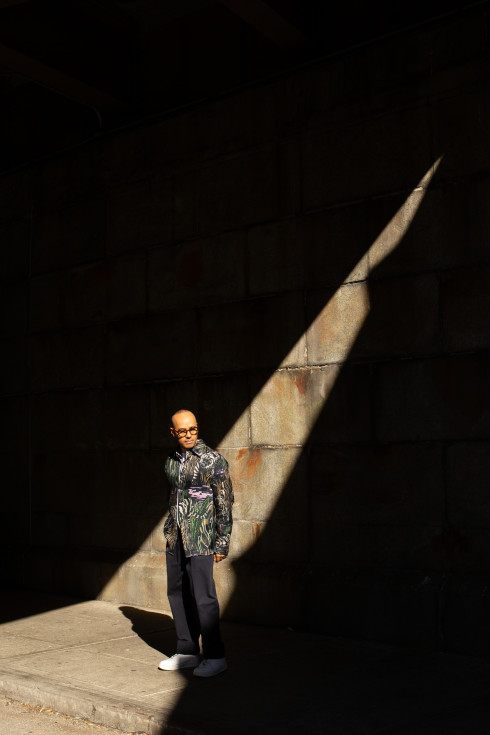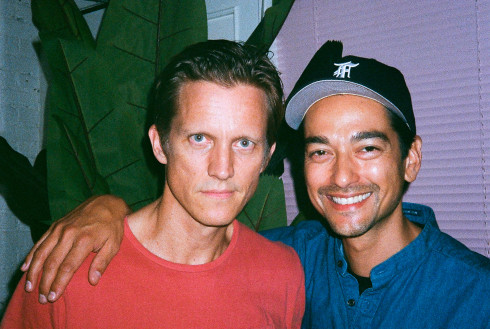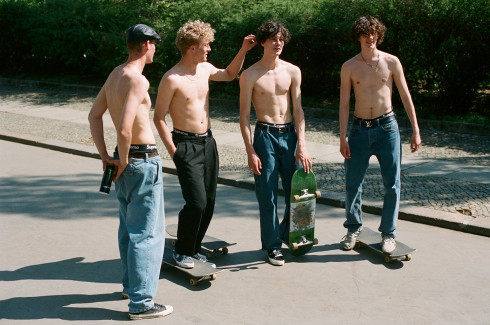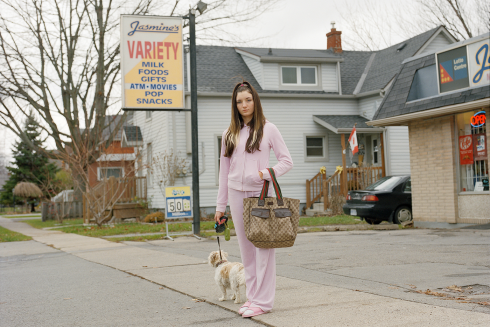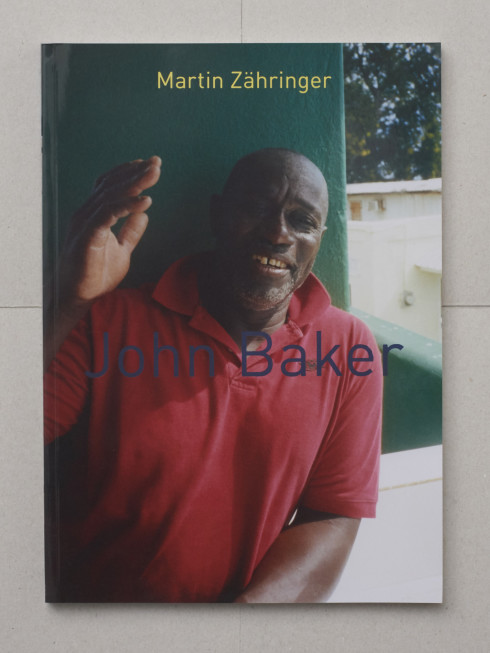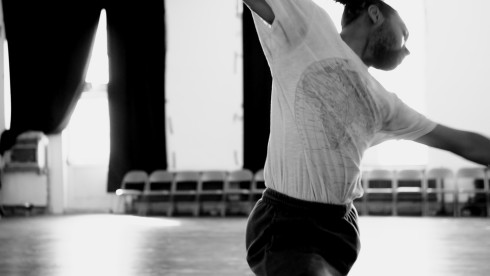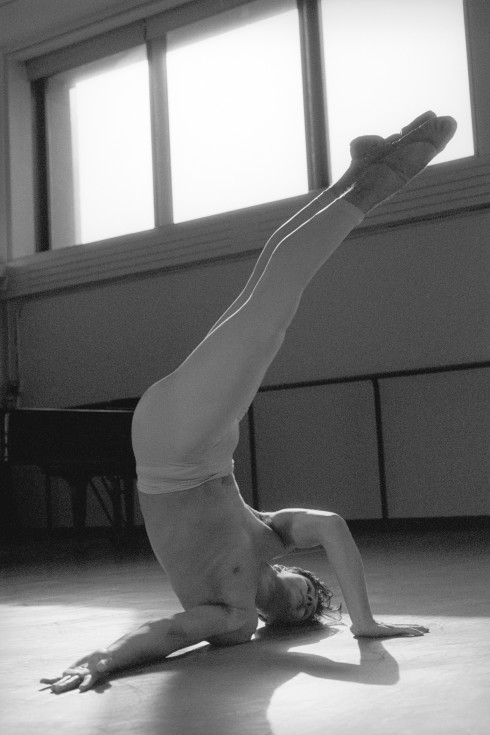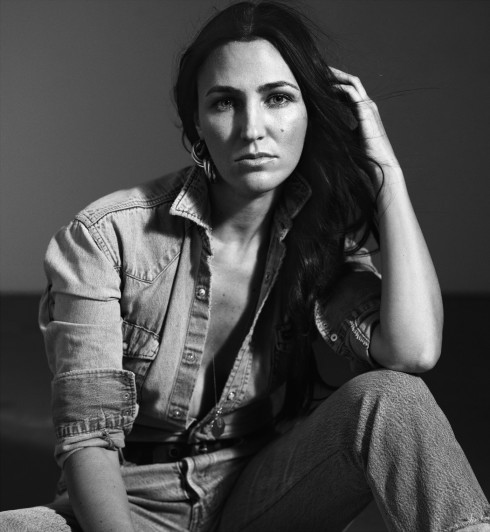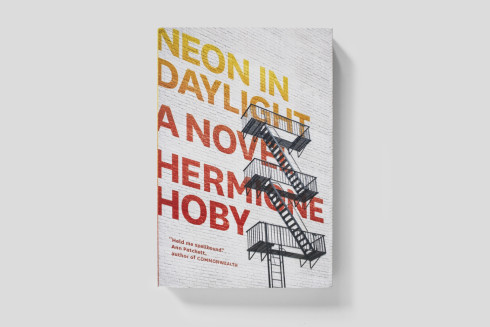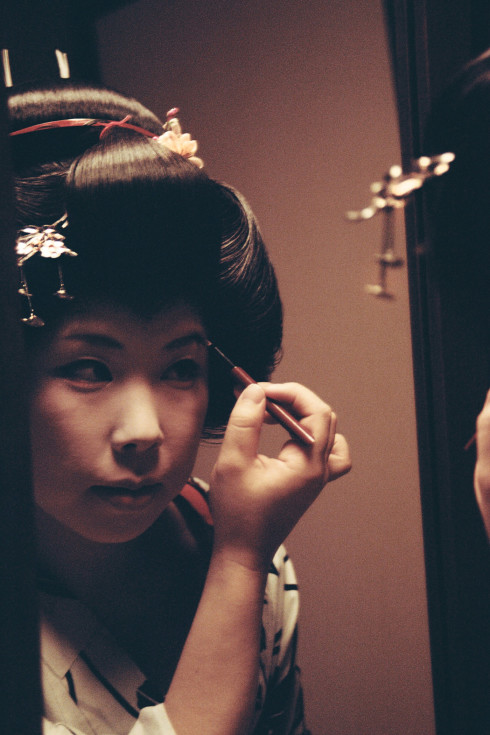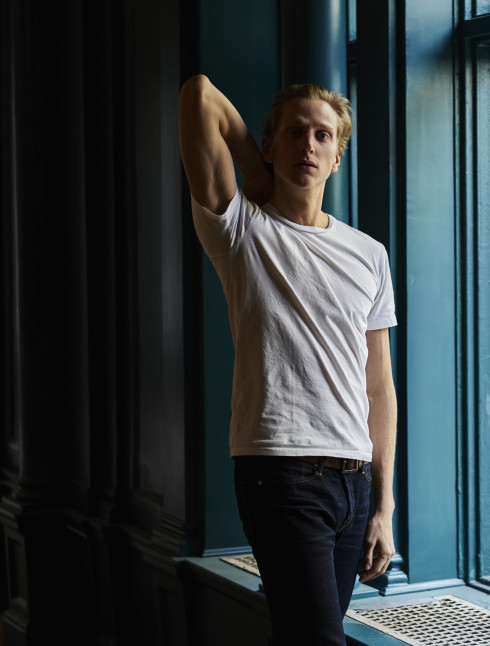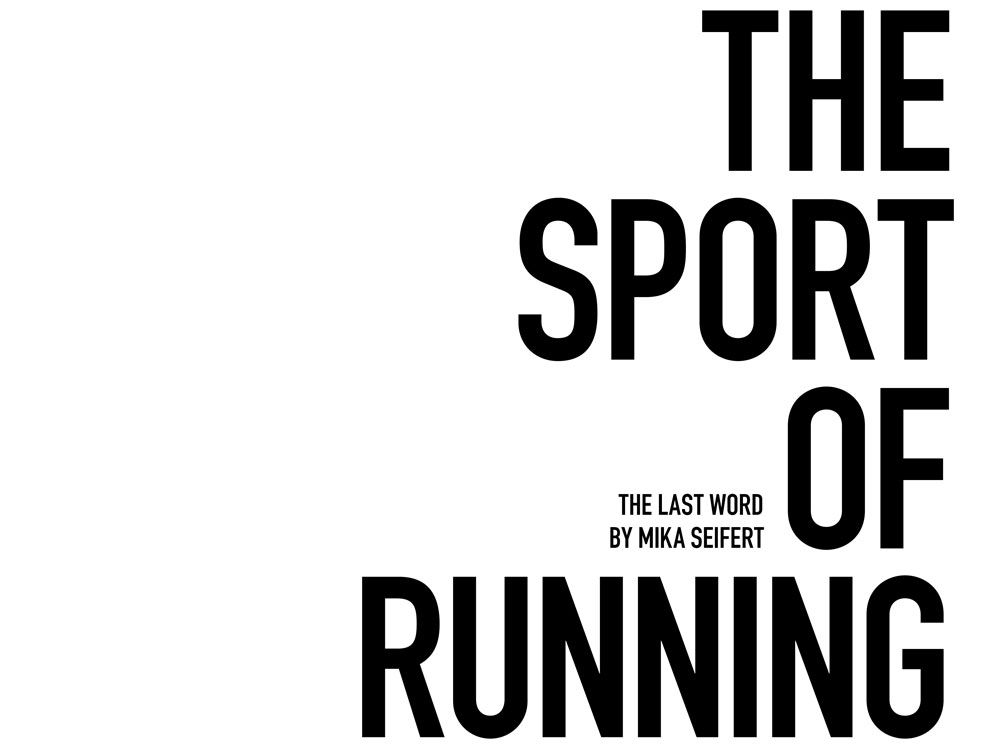
THE LAST WORD - THE SPORT OF RUNNING
Our ongoing series of original short fiction continues with “The Sport of Running,” Mika Seifert’s haunting tale of an exercise epidemic that takes a dark turn.
My observation took on a whole different flavor later on. At the time, it was meant to be funny. My father, so my observation went, would appear at any given spot in the house—ground floor, second floor, basement, even the garage and outside in the yard—within minutes, usually two or three, but five minutes at the very latest. It was funny, because it was true. No one who knew my father, who had been in a room with him, could fail to see the truth in it. Even casual acquaintances knew this about him, since it was what everyone first noticed when they met him—how he appeared to be everywhere at once. Many times when I invited friends over to our house from school, they would remark on it to me. Your father, they would say, he’s really something, isn’t he?
I had always known this about him, of course, and yet something fell into place the moment I said the words for the first time. I felt that I had found something true and said it in the best way possible—my first success as a writer, long before I wrote my first story.
It was when my friend Ben Taweli was staying over one Sunday and we were playing some game or other, that I turned to him and said: You know, I’ll bet you my father will appear anywhere in this house within three minutes.
I’m not betting on that, Ben said, I’ll lose.
I looked at him and smiled. Let’s try it then, I said.
How?
We’ll pick a spot. We stand there, then we wait. How do we time it? Ben asked; neither of us owned a watch at the time.
We’ll count, I said. I’ll count.
What do I do?
You watch, I said. See if you can hear him. He’s so loud, you’ll hear him long before he comes in.
We picked an easy spot to begin with, the large downstairs room where the television was and where it was very conceivable that my father might come looking for something very soon. He was always looking for something, or remembering that something needed fixing, or looking for things that might need fixing very soon, and once he found something, he would always give it his immediate attention. My mother once joked that she would start wrecking things one day just so he could fix them, and that she would do it in order to make him happy. I have inherited my writer’s imagination from her, I believe.
The large room in the basement was an easy task, we thought, for my father. We sat down on the couch and Ben turned on the television, but we didn’t care what was on. We turned down the sound and sat as still as a pair of mice, listening to my father move about upstairs. I looked at Ben and gave him a sign that I would start counting; then I began to count, silently, almost holding my breath.
My father arrived before two minutes had passed. Thought you boys might like some cake, he said, putting before us a large plate with chocolate cake, my favorite. Then his smile broadened. What’s so funny? he asked.
But we didn’t tell him. Something on TV, I said.
That day, we hid in many places. We hid in the shack outside, where my father stored his tools and where he found us after four minutes. We hid in my room and in the kitchen and in both bathrooms. In order to make things more difficult for my father, I went to the upstairs bathroom, while Ben at the same time went to the bathroom in the basement, but my father found us both within a minute of each other.
At last, I hid alone in a cupboard in the living room, where the expensive china was stored and where, I thought, my father would never suspect me. I sat unmoving, fearful that I would topple the china.
It took eight minutes, but finally the door opened and my father’s wide smile greeted me. Just oiling the hinge, he said conspiratorially, be done in a minute. You hiding from your mother?
From Ben, I said in a thin voice.
I’ll close up again then, my father said and winked at me. You’re safe here.
I told the story many times, but I never told my father. I told my sister and my uncle and both of my aunts. I told whoever was willing to listen, and I told it because of the wonderful reviews my little anecdote garnered for me. My aunts gave me a kiss and said I was adorable. My uncle patted me on the back. I remember his booming laughter the first time he heard me tell it. That sounds like your father alright, he said. You have quite the eye.
When it came time to write a personal memoir at school, I chose to write about my father. My Father, the Runner, I called it, and to this day the first sentence of that memoir remains one of the very best first sentences I ever wrote. Every day in our house, it went, my father runs a marathon.
Then they all thought I was funny. Witty was the word my teacher used. But later they didn’t think that anymore and I was no longer credited with being witty, but with an uncanny knack for sensing the beginnings of things—more serious things.
It would be five years before my father was diagnosed as a runner, and then he would be one of the first. Before that, for a long time still, he was what he had always been to us—a nervous, fidgety man whom we all loved deeply. He was not a runner then, but merely someone who had trouble keeping still, a harmless personal trait he shared with millions. When he came home from work, he wouldn’t rest. He would never be found on the couch or in front of the television, though he sometimes turned the television on and left the room before the picture fully settled, or maybe he would run through all the channels and very quickly realize that there was nothing that interested him and he would leave again, to fix one thing or another so that it could be more permanently in place than he himself was ever able to be. Because that was what my father did best, making certain everything around us was securely fastened, and in that way my father kept all of us safe from harm.
Dad, what is it that you do, exactly? I remember asking him one day. The first doctor’s appointments were still more than a year away at the time.
Pardon?
I said, what is it that you do, exactly? When you go off to work.
Why, I told you, Danny, he said. I’m an architect.
Yes.
I build things. I plan things.
I mulled this over. What are you building now? I then asked. My father was standing on a chair, replacing a lightbulb in the bathroom. I was in the doorway, watching him. For the briefest moment, he stopped, his back towards me. I’m building a track, Danny.
For racing? I asked him.
For running, answered my father.
Later, it made me think that perhaps I wasn’t the only one in my family who had a sense of the onset of things; my mother may have given me her writer’s imagination, but I had inherited my sense of premonition from my father.
It was the summer after that, I believe, when I noticed a change in him. I thought about it for several days, and then it came to me that my father looked like a man transformed. He had never been a weak man, but now he radiated good health.
Your father has taken up jogging, my mother said.
He runs?
Five times a week.
Where does he run?
Oh, along the river, my mother said. In the woods. To town. Why don’t you go with him some day?
But I never asked my father if I could go running with him, because that summer, things finally began happening for me. Big things that drove from my mind instantly all thoughts of my father and his new habit of running along the river. It was the summer I became a writer, and it was also the summer I found Becky Lonsdale.
I had toyed before with the idea of starting to write a story. Ever since I had written the essay at school, the one about my father, people had told me that I would be good at it. I was a natural storyteller, they said to me, and after they had told me enough times, I believed it, too. I even began a few times to write the beginning of a story, but found my adversary very quickly, and it was a merciless one—my very own adversary was description. I could find plots easily enough. In a week I found enough plots to fill a dozen books. They were good plots that I became very excited over and that I thought people would love to read about, but once I sat down to write the story, I quickly found that the plot was all I had and that I lacked so much else. I could never describe anything, not a setting, not a scene, least of all a person. Description, it seemed, was going to put a quick end to my ambitions.
It was on a day just like that when I decided to stop writing altogether. The day before, I had found another good plot. I had let it marinate for the rest of that day and the night, and in the morning I had sat down to write. It was the same as always: the action unfolded mercilessly on the paper and I was utterly helpless to control its flow. By the time I was three paragraphs in, I was already nearing the end of my tale, with the protagonist at death’s door and all hell breaking loose.
That day, I decided that I was going to be an architect instead, like my father. I wanted to let him know at once, so that he could tell me how best to become an architect, and so that he could teach me all the things I needed to know. I went to find him, but the house was empty.
I found my mother outside in the yard. Oh, your father, she said, he’s running along the river again.
The next day, something happened that made me forget about it all completely.
When I found Becky Lonsdale, I found description, and it happened like this: After several weeks of going to the movies with Becky or going outside to look at the trains together or going over to her house where her mother made us cookies, I felt the familiar urge again to sit down and write. I had a new plot all ready. That week, our teacher had made us write down on a piece of paper the word freedom. Underneath it, she asked us to write one sentence, a single sentence that spelled for us the meaning of the word freedom. It had stayed with me all that week, and I knew I wanted my story to be about a man who was free but also in a way not free at all. I called it A Day in the Life of the Free Man, and when I started to write, the description was there, as though over the last several weeks Becky had deposited it there for me.
I wrote:
A ray of light pierced the shutters of the window high up on the stately mansion and pulled the lips of the free man into a big grin. He bent down to retrieve his slippers from under the bed, where a fit of anger had put them the previous evening. What a fine morning this is, the free man thought. That horrible rain which had plagued the free man all week long, gone at last. He breathed a sigh of relief and, for one glorious moment, basked his pallid face in the early morning sunshine.
It was exhilarating. I wrote one page, two pages, ten pages, and still I wasn’t finished with my story.
When it was done, I started another. Within days, I went from knowing I would never write another word to feeling with certainty that I would never do anything else. When I remember it now, it seems that all I did that whole summer was write, and when I didn’t write, I was outside, watching the trains with Becky. That was why I didn’t see the change when it came. Didn’t see any of it, even though I should have seen it of course, because it was all happening in plain sight.
There was a hilltop that we favored, Becky and I. It was our favorite spot because from that hilltop we could see not only the trains as they came round the bend and at length disappeared in the distance, but could also see the plain stretch out below us. We could see the river and the woods, and where the woods became the town. We would watch the river and Becky would point and say, there’s your father again, Danny. And I would say, that’s him, or I would look again closely and say, it isn’t, it’s someone else.
It was easy to see how she could be mistaken; there were, it appeared, a great many people who had taken up running the summer I became a writer.
I remember one day in August. It was a day of sudden noises: the single bark of a dog, a car’s honk, someone yelling. Even the wind participated in that game of startling; we never heard it arrive as one did on most days, when one could always see it nearby in the trees before it made its approach. On that day, however, the wind would be gone and the very next moment it would be right there, twirling the leaves at our feet.
Late in the afternoon, I was again on the hilltop with Becky, watching the trains. There was one every half-hour or so, and when there wasn’t a train, we made a game of predicting where the wind would go next, Becky proving to be far more adept at predicting the ways of the wind than I.
We were so immersed in trying to catch the wind that the sound startled us even more than the wind would have done. It was a long, drawn-out sound like of a wounded animal, and when we looked up there was the five-o’clock train, unmoving and blowing steam on the plain below us. I remember thinking that it looked almost surprised, as though it had been caught off-guard completely by whatever had happened. It made the sound three more times and then fell silent, continuing to blow the steam indignantly into the hot air of August.
For how long the train stood like that on the plain I can’t remember. It must have been fairly long, and all that time we were up on the hilltop. We had sat down on the ground and the wind had settled somewhere, too, or perhaps it had gone down to the plain, because we didn’t see it again for the rest of that afternoon.
After some time had passed that way, the doors of the train opened, all of them at once, and the people came out and stood there on the plain as if they couldn’t believe it. Then, as though in a daze, they began moving towards the town, men and women, and some children, too. Many of the men were lugging along heavy suitcases. I held Becky’s hand and together we watched until the last of them had made their way into town.
It was the last time anyone walked so slowly, so deliberately.
It turned out that the boy with the knack for sensing the beginnings of things wasn’t as skilled at keeping track of them as they developed. This is what I missed: my father running not for an hour a day anymore but staying out longer and longer each day, his pace accelerating until he was the fastest of all the runners along the river, the ruddy good health in his face changing to something else, the broad smile he always greeted us with vanishing and changing into the same thing that his face had become, my mother becoming so worried that she hardly spoke to us at all anymore.
When we arrived at the hospital, it felt as though I was coming out of a deep slumber. The summer had passed, it seemed, in a single moment. I had taken no notice at all of the fall and of the coming of winter, and when the first leaves appeared once more in the spring, the spring my father was brought to the hospital, I wondered if the seasons had gotten all mixed-up.
In the hospital, too, my father mostly ran. They watched him run on treadmills and in the hallways, and then they watched him run in circles around the hospital. I never knew if they learned anything from watching my father run, but they looked as befuddled then as I felt. Perhaps, I thought, the year had passed too quickly for everyone.
Once, they asked us to come late at night and then gave my father something to sleep, back when the medicine still worked. We watched him sleep, the three of us. After two hours, my father’s legs kicked out, first only in a slight tremor, then more strongly until he was kicking the air violently, as though he was riding an invisible bicycle. The sight brought tears to my mother’s eyes and she made us leave the room.
My father was awake when they told us. He would be awake now until the end, they said.
My mother looked at them in silence. She said nothing, but then she didn’t need to; what she wanted to ask could be read clearly on her face.
We don’t know, they said.
The silence stretched, reached the corners of the room. There are others. We can tell you that.
How many?
Many, they said. We’re calling them the restless.
A month later, they were calling them the runners.
The big picture soon became confusing, and so it was easier to look instead at how our own town fared. How it changed. Or even how our street changed.
The runners quickly became a constant presence. Every day, there were more. Some of them made an effort to make it look as normal as possible, greeting us with a smile as they ran past and even dressing up in bright gym clothes. But it was a futile gesture; we all knew that no one ran anymore unless they couldn’t help it, and that once they turned around their faces became sallow and their feet dragged along.
In the daytime, many of them ran indoors, and at night they took to the streets so they wouldn’t disturb their families. So they wouldn’t disturb the sleep of their children. But sometimes the children were outside at night, too, running alongside their fathers.
Once a word for it had been found, it seemed, the need for that word to describe whatever was going on was suddenly very great. My brother is a runner now, people would say. Or: My mother started running this morning. Or: We found our grandfather running outside last night.
By the end of the month, there was at least one runner in every household that we knew, and in the big yellow house at the end of our street, an entire family of runners lived.
In our own family, then, there was still only my father. Becky and I were on the hilltop, comparing notes.
I said:
In Moscow, a pilot ran out of the plane at thirty-thousand feet.
Becky said:
In Berlin, half the population is now rumored to be runners.
I said:
In Milan, an entire soccer team ran off the field at half-time and are now said to be well on their way to Switzerland.
Becky said:
Aerial photographs taken of the city of Chicago suggest the runners moving in a pattern similar to the one used by migratory birds.
I said:
The decline in book sales has now been linked directly to the increase in runners, with sales expected to drop further this summer.
Becky said:
Running in the very early stages is still thought to be healthy for the body and mind, and to cause no damage, say scientists, who are now trying to arrest the illness in that early stage.
I said:
In Tokyo, the president of a company ran out the window of his office, up on the ninety-eighth floor.
For a few years, that was how it went. We didn’t get used to it, but we did get used to the idea that the scientists would never find what was wrong.
Now I am a runner, too. Although they say that it isn’t genetic, that it has nothing to do with my father having been a runner, and that it doesn’t mean my mother will ever be a runner, or my sister. It’s a toxin of some kind, they say, or a pollutant. They’re looking for it now in our salads and bread, in the meat of our cows and our chickens, in the fuel of our cars and planes. But they haven’t found the pollutant there.
I run eight hours in the day, and the rest of the time my head bobs and weaves and my feet tingle and my hands lash out. I run five hours at night. I’m out there now, with the rest of them. There are so many of us now that it’s a stampede every night. Our heavy breathing, like horses laboring, fills the night, and the hot breath of the one behind is always on us.
The train no longer comes, so that we can’t run in front of it as it rounds the bend at full throttle, a thing many of us had contemplated.
I am in sight of the old hilltop now, and I run up one side of it with total and wonderful abandon. I run until I’m at the exact spot where I used to sit with Becky and watch the trains together and predict the wind. But I’m the wind now, and I can no longer sit down. I only have a single moment to be on the top of that hill, one more fine moment up on the hilltop, then I’m racing down the other side of it, towards the plain and where the train used to be. I run along the tracks, and then I run on the tracks. I’m the train now and running as fast as I can, almost toppling my carriages. I can feel the men and women and children holding on inside me for dear life as we round the bend, the suitcases flying and the steam escaping me in great, sick blasts. I make a howl then. I make it three times in very short succession, and then I make it a very long howl, and strain to draw it out for a full minute so that it may be heard up on the hilltop and in all the streets of our town and in our house, too, so that my mother and sister may know that tonight I don’t come home. That tonight I go further beyond the plain.
Mika Seifert is a writer and concert violinist. He is currently finishing his first novel, The Bells.
